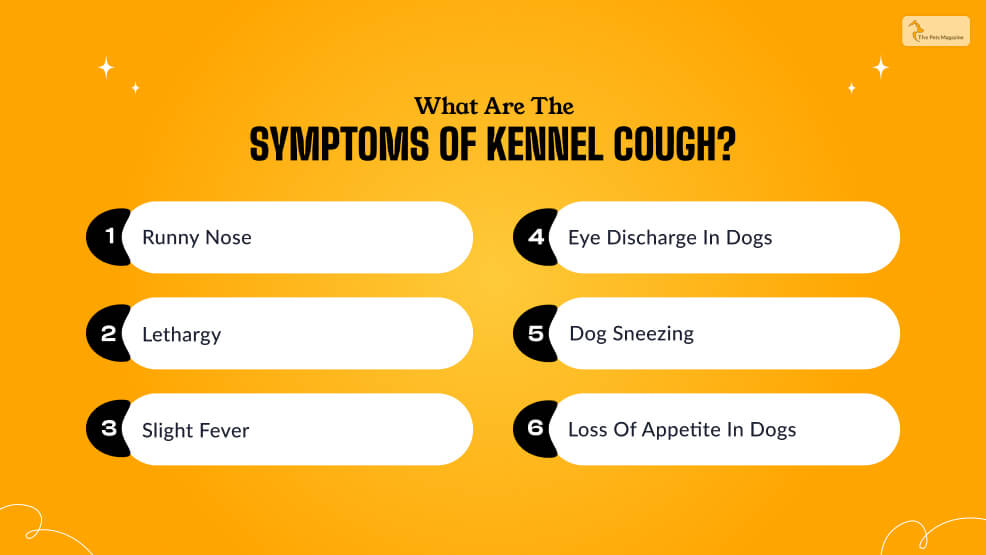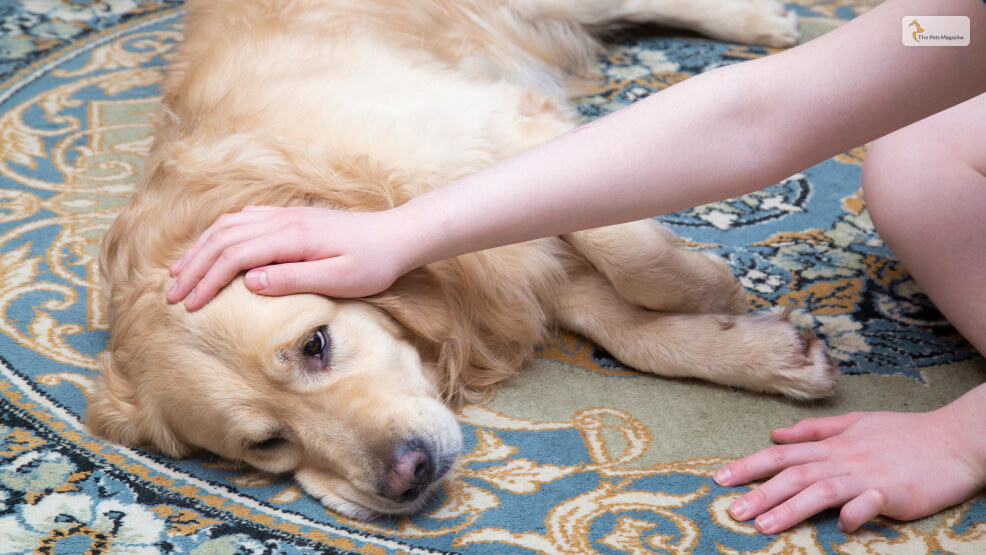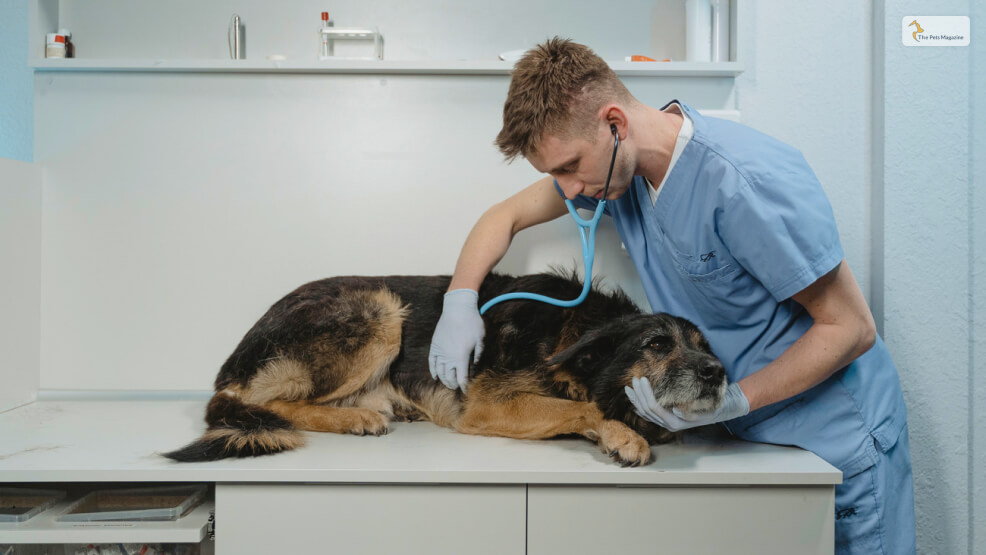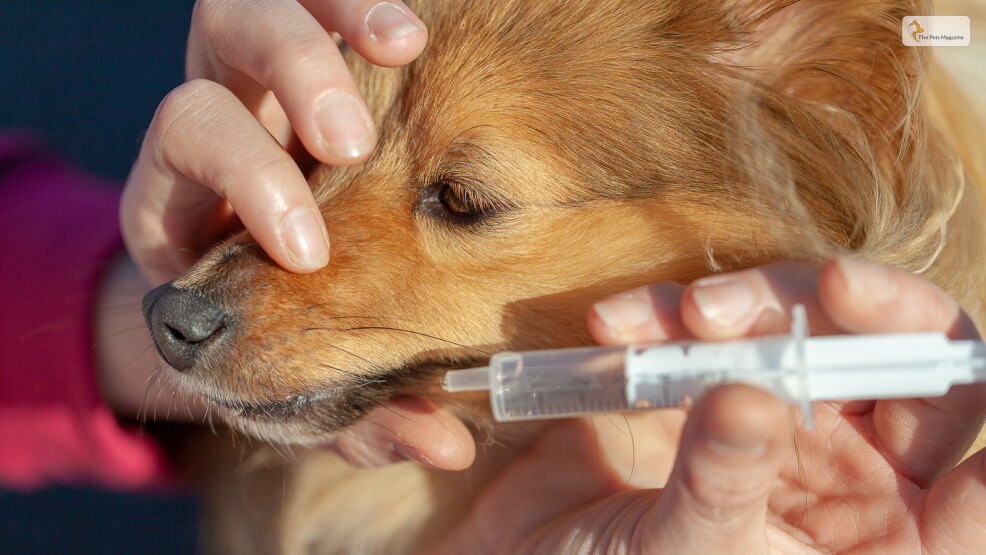How Long Is Kennel Cough Contagious?


To answer the question asked in the title,” How long is kennel cough contagious?” we need to know about many factors. Most dogs suffer from kennel cough once in their lifetime. This is an infection that affects the respiratory system, with symptoms that include coughing and hacking.
Sometimes this doesn’t cause anything severe and heals without any kind of treatment, but often it gets serious, and they cough so intensely that it feels like they have got something stuck in their throat. So let’s discuss this in detail in this article and find out everything that is necessary for a canine partner to know.
What is Kennel Caugh?
Kennel Caugh is a type of bronchitis or, in popular words, infectious canine tracheitis is a combination of bacterial and viral infection that affects the upper windpipe. It gets the name because it is highly contagious and spreads rapidly in areas like kennels where many dogs are found together living in close proximity.

This is distinctively dry and is often followed by gagging as well as retching. If they are infected with kennel cough, they might bring up foam or phlegm during the end. This can also cause inflammation in the dog’s upper respiratory tract, including larynx and trachea.
What is the Cause Behind Kennel Cough in Dogs?
Dogs get infected with this disease when different viruses and bacteria attack them, and sometimes both. The viruses that can cause kennel cough in dogs are canine parainfluenza virus, canine herpesvirus, mycoplasma, and canine adenovirus, but mostly what causes this is Bordetella bronchiseptica.

They are affected but these bacteria and viruses when they inhale these into their respiratory tract. They get affected by the bacterial stain Bordetella when their immune system is weak, which can happen when they are infected by a virus in the first place.
What Does Kennel Cough Sound Like?
Kennel Cough sounds like the dog has got something in their throat, and some may say that it sounds like a goose-like honk. It is dry and hoarse and can also produce mucus, and it is often seen that our canine friend tries to swallow that. It is nothing like a sneeze or reverse sneeze.
What Are the Symptoms of Kennel Cough?

Some of the kennel cough symptoms that you need to look out for are:
- Runny nose
- Lethargy
- Slight fever
- Eye discharge in dogs
- Dog sneezing
- Loss of appetite in dogs
- The main symptom is a constant hacking and forceful cough, which sounds like they are trying to get something out of their throat.
Not every dog shows all the symptoms or some of these together, but only a few show other symptoms apart from the main symptoms. Generally, they show a decrease in energy and refuse to eat. It is best to consult a doctor if your pet is showing any of these symptoms.
How Does Kennel Cough Spread?

There are certain factors that aggravate the spreading of kennel cough in dogs. Those are:
- If they are exposed to dust or smoke from a cigarette.
- Poor ventilation
- Sharing of dog toys and bowls with other dogs living in the same kennel.
- Cold temperatures
- Travel-induced stress
- Being in crowded conditions.
- Being around dogs or sharing things with dogs who have been infected with kennel cough.
How Long is Kennel Cough Contagious?
Kennel cough stays contagious from 2 to 14 days. During this period, the affected dog should be separated from other dogs and kept incubated. It can also happen that a dog is carrying the disease in itself and not showing any kind of symptoms. They could be shedding infectious particles, so it is better to keep them isolated till 48 hours after the coughing stops.
It takes early three weeks to clear up the virus and bacteria. But it can often happen that a dog takes as long as six weeks to clear up. This happens when an older dog is affected, or they have some previous medical condition.
How Do I Minimize the Risk of My Dog Getting Infected With Kennel Cough?
To minimize the risk of your dog getting infected with kennel cough when exposed to other dogs, you can take several precautions:
- Vaccination: Ensure your dog is up-to-date with their kennel cough vaccinations. The vaccine doesn’t guarantee complete immunity but can significantly reduce the severity and duration of the illness.
- Avoid Crowded Areas: Try to avoid taking your dog to places where many dogs congregate, such as dog parks, boarding kennels, and grooming salons, especially during peak seasons.
- Hygiene Practices: Maintain good hygiene by regularly cleaning and disinfecting your dog’s living area, bowls, and toys. Wash your hands thoroughly after handling other dogs.
- Limit Contact: Prevent your dog from having nose-to-nose contact with other dogs, and avoid sharing water bowls or toys with them.
- Monitor Health: Keep an eye on your dog’s health and watch for any signs of kennel cough, such as a persistent cough, sneezing, or nasal discharge. If you notice any symptoms, consult your veterinarian promptly.
- Isolate Infected Dogs: If your dog shows symptoms of kennel cough, isolate them from other dogs to prevent the spread of the infection.
By following these steps, you can help protect your dog from kennel cough and keep them healthy.
How to Treat Kennel Cough?

If your dog is healthy and young, it might not require any kind of treatment and can heal itself with the passing of time. This is because the viral part of the infection can heal only through the immune system. But it is important to consult a vet if they are showing severe symptoms or if you have an older dog or an infected puppy.
The most common medication for kennel cough is an anti-inflammatory medicine. This is needed because when they cough, they can cause a sore throat, and that can lead to even more coughing. Anti-inflammatory medicines also help them with fever as it gets the temperature down.
Dogs who have a weak immune system and need to fight this infection are prescribed antibiotics by their doctors. Special care should be taken if there are symptoms that the infection can spread to the lower airways as well.
kennel cough treatment can also be done at home, and they are not very difficult. Keeping them in a humid area, do not use a collar as that can cause further blocking in the windpipe. But if you are worried, then take them to a vet and keep them away from any kind of risks.
Is There Any Kennel Cough Vaccine?
The main bacteria that causes kennel cough is Bordetella, and there is a vaccination for that. Any vet can help you with that, and also, getting them boosters or any puppy vaccinations can help with their immune system.

There are many boarding kennels and day-cares which will ask you to get your little furry friend vaccinated before getting them there. But kennel cause is caused by various stains, and sometimes these vaccinations might not help as well.
Bottom line
This is an infection and not a disease, so there are many possible causes for it. These are only contagious to dogs and not humans. So it is safe for you to be around your pet and care for them when they require care and affection.
They are almost zero to little evidence which shows that humans can get affected by these bacterias that are affecting animals.
Have you read these?









Leave A Comment